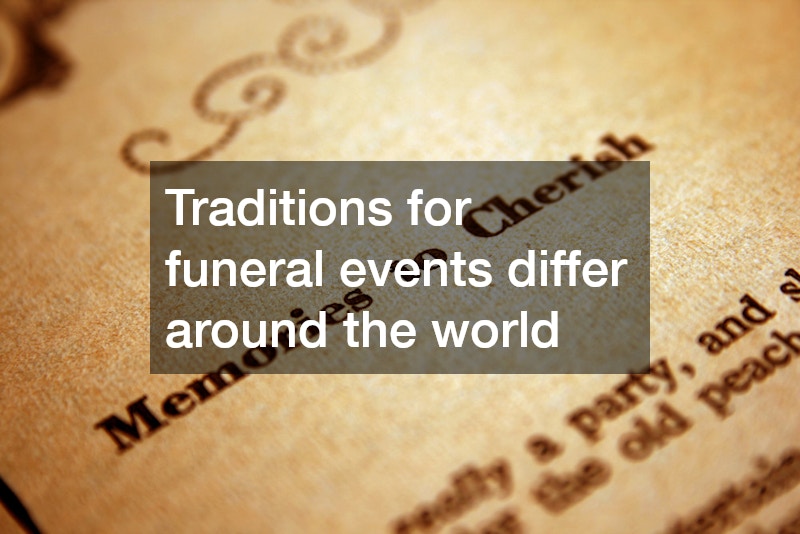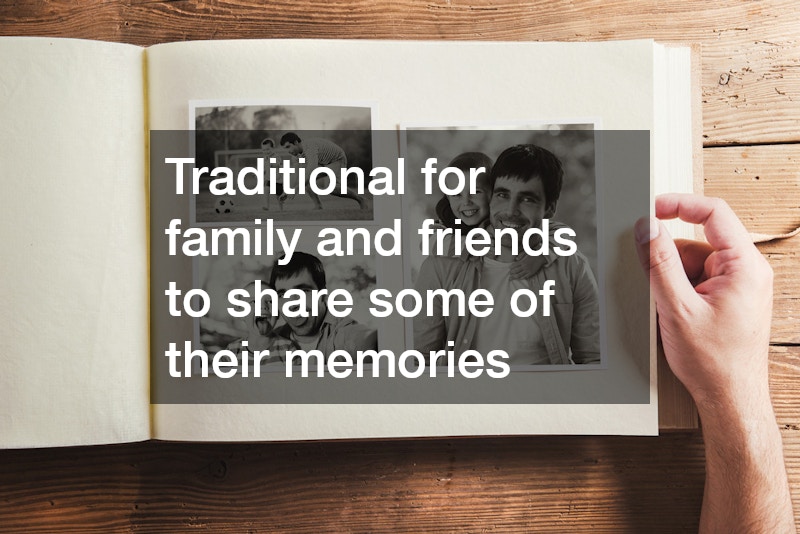
If you are working with an estate planner, to arrange for the eventual distribution of your wealth, the estate planner will probably bring up the subject of funeral planning. Many people have preferences for what they want to have included in their funeral service. By formalizing those plans with an estate planner or funeral director, you can let your family know your wishes.

Traditions for funeral events differ around the world, and according to each family’s faith tradition. However, the purpose of funerals remains the same: to help the family and friends of the deceased to find closure and to say goodbye. For many families, funerals are an occasion of deep sorrow and an expression of mourning. Other families prefer to use the funeral as a celebration of the life of the deceased.

According to the Federal Trade Commission, there are several versions of a traditional funeral service. Some families prefer to provide a few hours for visitation before the actual service. A typical funeral service will have a speaker (usually a member of the clergy), and some music. It is also traditional for family and friends to share some of their memories of the deceased.

Updated 6/10/2021
Managing a funeral service for a passing loved one is one of the most challenging parts of laying someone to rest. It’s important to know that funeral homes and their staff are not just in it for the paycheck.

Many funeral homes are owned by individuals and families who intimately understand the pain that death causes and how difficult it is for those left behind to plan a funeral procedure. In today’s world, running a funeral home requires formal education. A degree for funeral director includes funeral service classes, learning about local and state burial regulations, the psychology of grief, and how to handle grieving family members professionally and compassionately.
Funeral homes are experts when it comes to funeral services, funeral planning, and future preparation. Even though it might be difficult and awkward to think about it now, it’s often preferable for individuals to make funeral service plans in advance rather than leaving them to family members who are left behind. Funeral services and memorial service types exist in many ways for every budget. All funeral homes are required to plan funeral services following the deceased’s wishes, religious observances, and balance that with what a grieving family may need for closure.

When you lose someone, asking another to shoulder the burden of grief can feel impossible.
Funeral services are more than just a basic resource. They’re there to help you walk through this difficult period in your life and help you find closure. Finding help for funeral arrangements can mean choosing proper funeral caskets for your deceased loved one or cremation services that will best honor your family’s memory. The vast majority of funeral homes in the country are privately owned by families who know firsthand the winding and painful path that follows the loss of a loved one. Reaching out to funeral homes will be the first of many steps on your journey to fulfillment.
Every country has its own relationship with life and death. The United States often sees individualized funeral caskets being requested to best match the deceased party’s memory, though there are multiple funeral homes to choose from until you feel comfortable. Over two million people will die in the United States every year. Which funeral arrangements will be the most appropriate is a slow and careful decision you shouldn’t rush through.
Studies have been conducted to best analyze the attitudes of the general American populace when it comes to death and burial. A Harris Poll survey found nearly 70% of respondents stating they would much prefer to pre-arrange their own funeral service — this is an essential element for those that want to be involved with every step, though others may find solace in handing over more responsibility to professional parties. Funeral costs will vary depending on whether you choose cremation or funeral caskets.
Yet others will fund their own funeral in advance. This is frequently done after updating a will, with some virulently aware of their shortening lifespan and wanting to put the least amount of strain possible on friends and family before passing. According to a survey provided by AARP, one in three people have engaged in funeral pre-planning, with another one in four paying for their own funeral ahead of time. This lines up closely with data provided by a Harris Poll survey, with nearly 90% of respondents stating a discussion about their end-of-life wishes would be a meaningful addition.
The decision to cremate or select from a variety of funeral caskets is a deeply personal one. According to a report provided by NFDA Cremation and Burial Report, around 48% of the deceased were cremated back in 2015. Another 45% were buried. Cremation services provide urns that can be used for ceremonial purposes or kept safely in the home. Another study found over 65% of people aged 40 or older stating funeral directors and funeral homes to be their best source of information when it comes to making funeral arrangements. A Harris Poll survey saw 80% of respondents also stating funeral homes provide additional valuable services, such as comparing costs and answering questions.
Reach out to funeral arrangement services and ask for assistance. Healing is a slow process, but one best done with a friend by your side.